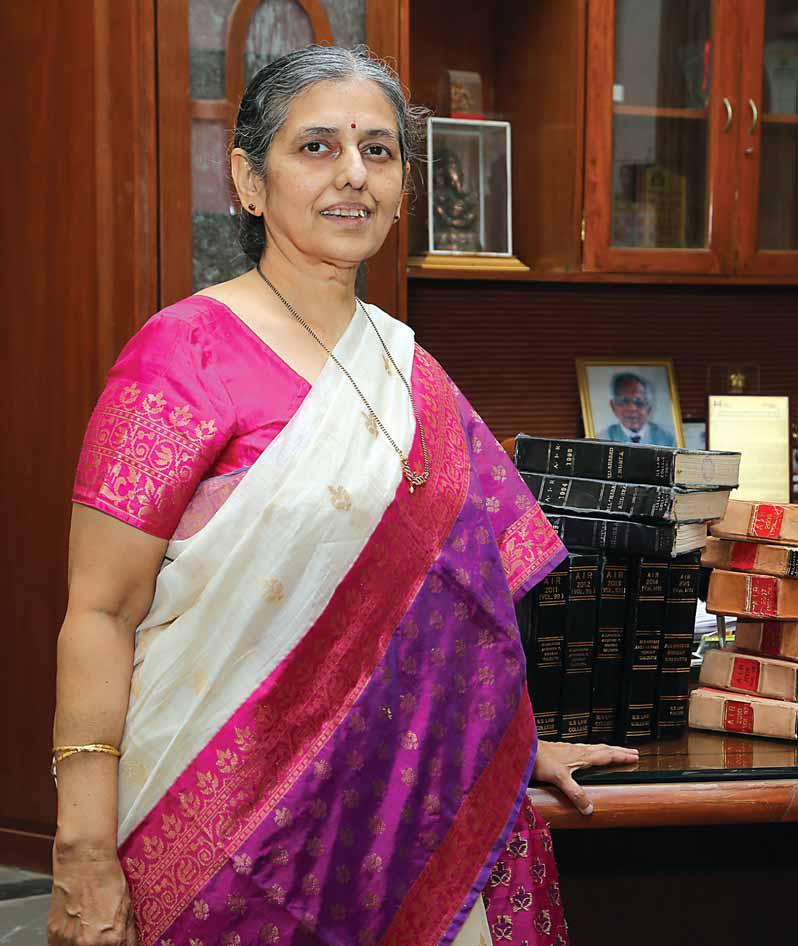
When the country's most prestigious law school, the Indian Law Society's Law College, commonly known as ILS Law College, Pune, was established_way back in 1924, legal education did not assume the significance or prestige that it has today. For someone to think of legal education on a priority basis and invest huge funds in it at that point of time was a remarkable initiative. It took a visionary zeal on the part of the Society to foresee the significance of law in the days to come, understand the role of regulation and freedom at a time when we were taking baby steps towards democracy_the bedrock of which is the rule of law. Thus, the genesis of ILS: to establish a framework for legal education and facilitate the functioning of the rule of law_with good judges, good lawyers, and good administrators. Consistently figuring among the top ten law colleges in India, this 90-year-old scholastic legacy has produced a galaxy of luminaries adorning high positions in legal and other fields. Principal Vaijayanti Joshi, who has been heading ILS Law College for the last 22 years since 1993, has also been a student and teacher of the same college. She talks to Corporate Citizen about the illustrious history of the college, the challenges and achievements, the relentless effort that went into bringing quality legal education to the masses and why the college stands tall as a premier law school in the country
When you become the head of an institution with such a huge reputation, the burden and responsibilities on your shoulders are multifold. Before I joined as the principal, the ILS Law College had 70 years of history and built the reputation of being a leader in legal education. Sustaining this reputation, not letting it be harmed at any point of time was a real challenge. It is very natural that everybody would like to compare you with the earlier principals and the work done by all the predecessors. That being so, you have to watch out for people's reaction because they keep comparing you with others in the past. But I was very fortunate that my father was the second principal of the college. I was around three to four years old and would often visit this campus. So the entire administrative staff which was recruited during my father's tenure continued working when I joined as a principal. I was familiar with how the office functioned, as a student. I worked as a part-time and full-time teacher. So, the whole staff was familiar with me, I was familiar with them. Many times a new principal faces the challenge of getting accepted_that kind of challenge was not there for me at all. I was an insider and my long association with the college made them comfortable with me. My predecessor was Dr Kelawala, and prior to him Dr SP Sathe was the principal. When I came here as a student, Dr Sathe was my teacher and he was my father's student. When I became the principal, Dr Sathe was always there to help me, but in spite of that, the challenge that I have to manage and lead a renowned institution like ILS was always there. I have to concentrate on achieving excellence in three key areas, i.e. academic excellence, administrative excellence and aesthetic excellence.
I was very fortunate that my father was the second principal of the college. I was around three to four years’ old and would often visit this campus. So the entire administrative staff which was recruited during my father’s tenure continued working when I joined as a principal
The ILS library is one of the biggest libraries of law books in India. We have recently constructed two more library halls of the same size. Today, the library occupies three and a half floors of the building. It has around 60,000 bound volumes of books. It is equipped with modern technology and is Wi-Fi connected. The library has a very precious collection of books_especially of the law reports. Right from the first law report till today, the library has the entire collection. There are law reports of the All India Reporter (AIR), Supreme Court, High Court. We have American law reports and the court of King's Bench and Queens Bench reports from England. Prior to the introduction of the judicial system, the British had brought in judicial administration. So, at each district and taluka level they used to have a cadre of judicial hierarchy and then we also had Sadr Diwani and Faujdari Adalats. So, law reports of these adalats are also available in the library. There are many international and national law journals. There are books on intellectual property, human rights, corporate law, and all modern laws, etc. Besides law books, we also have books on social sciences, English and Marathi literature. The whole idea of developing such a big library is that a lawyer has to be very well read, whether it is social science or literature. It helps prospective lawyers learn to express themselves effectively.
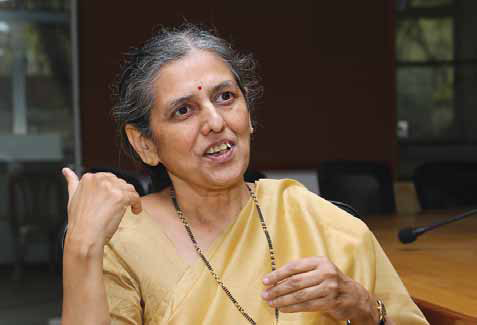
I got interested in law since my schooldays. I always had a penchant for law and the reason for it is was that my uncle was a lawyer practising in the Pune courts and my father, GV Pandit, was the second principal of this college. My parents are from Pune and my parental house is in Narayan Peth. Probably because of both of them, and the atmosphere in my family, where the topic of law figured so often, I imbibed a fascination for it. I did my schooling from Ahilyadevi High School in Shaniwar Peth, Pune. I completed my matriculation in 1971, which was Standard XI at that point of time. Then I did my BA degree (with Sanskrit and English) from Fergusson College (1971-1975). After that I joined ILS Law College (from 1975-1978) and did my LLB (Bachelor) and my LLM (Masters) from 1978-1980. After my LLM, I joined ILS Law College as a part-time teacher. Coming to law college was a very natural choice for me, but there was no compulsion. I had a flair for law and I got interested in it. I also practiced in the Pune court for a few years, and simultaneously taught here. In 1986, I became a full-time teacher. I used to teach Mohammeddan Law, Family Law, and Administrative Law. In June 1993, I took on the role of principal at ILS Law College. So, I have completed all the stages of being a student, a teacher and now a principal, here in ILS Law College.
The ILS library is one of the biggest libraries of law books in India. We have recently constructed two more library halls of the same size. Today, the library occupies three and a half floors of the building
Generally, people were of the opinion that rejects of all disciplines opted for the law course. Students were not talented, they come to this course as a part-time course, they did not devote much time to studies, and believed one can study law without attending classes_that kind of perception was always there. When I became the principal, India was changing in terms of economic policies, and globalisation was gradually setting in. The economy was opening up and law education was beginning to take importance. There was a clear indication that law and legal education was going to change over a period of time.
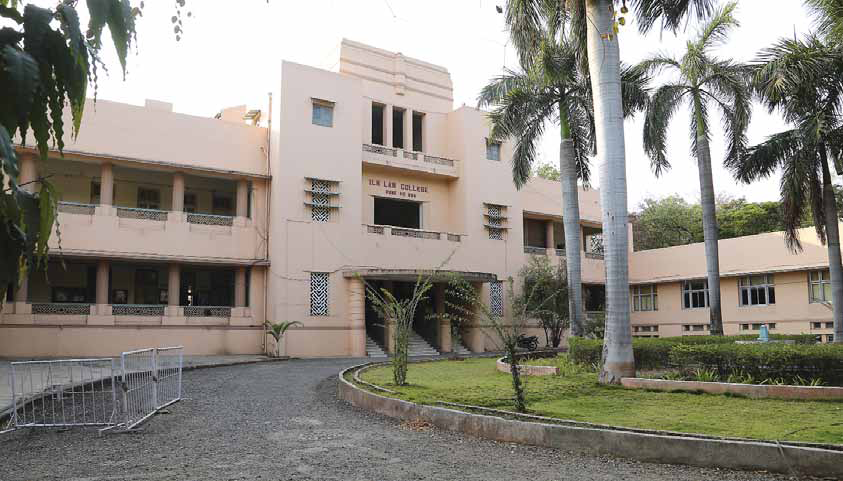
The Indian Law Society (ILS) is the parent body of the ILS Law College. The Society was started in 1923 and established its law college in June, 1924. The very purpose of establishing the ILS was to impart legal education on a scientific basis. That being the mandate, starting the law college was the first priority. At that point of time, there was only one government law college in Bombay which catered to the whole of Bombay state, up to Karachi in Pakistan. The Law College Poona, as it was called then, was initially started in the amphitheatre of Deccan Education Society's Fergusson College in Pune. In 1924, the Law College Poona was affiliated to Bombay University. Then in 1948, when University of Pune (now known as Savitribai Phule Pune University) was founded, ILS Law College got affiliated to it.
In 1934, the land where the present day ILS Law College campus is, was acquired. The main Saraswati building and other college buildings were completed in 1936. The design of the Saraswati building looks like a yogi sitting in a dhyanmudra position at the foot of a hill, with the hill in the background. The Saraswati building houses the library and all the offices of the teachers. Along with Saraswati there are the boys' and girls' hostels, which were also started in 1936. Then came the gymkhana pavilion and gymnasium. In 1951, the Laxmi building was constructed. Except the Laxmi building, the rest of the campus, including the boys' hostel came up till 1936. Right in the beginning facilities like the cricket ground, gymkhana, swimming pool, along with other all sports facilities were provided at the campus. In 1936 the law college got shifted to this new campus from Fergusson College amphitheatre,.
During the acquisition process of the campus land from the private owners, the then founder principal of ILS Law College, Late Nanasaheb Gharpure, who was also an eminent lawyer, felt there could be issues regarding the title of the property. So he requested the Governor of Bombay to acquire the land for them. The State of Bombay acquired this land and ILS paid the consideration for the property and then the title to the 195 acres of land was transferred to the Society. A major portion of the land is occupied by the ILS hill, and the remaining plain land is where all the buildings are situated.
The great personalities who formed ILS in 1923 foresaw the importance of having a law college. All the founder members of the Society were lawyers. Justice Narayanrao Chandavarkar of the Bombay High Court was the president of ILS. HC Coyajee, who was practising at Bombay High Court was the vice-president, and Nanasaheb Gharpure, a renowned practising lawyer of Hindu Law, became the founder principal of the college. Along with him were Rao Bahadur PB Shingne and AG Sathaye, and these five persons came together and established ILS, with the mandate that they will start a law college. The motto of ILS is "Dharme sarvam prathistithum" which means everything is centred in law and law is the foundation of the universe. Its dedicated service to legal education was acknowledged by various institutions from time to time _
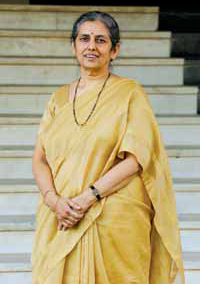
Till 1995 admissions at law colleges used to be done at the admission counter. Students would come and deposit their application and fees, and admissions were done. If you had passed your BA even with 40 percent marks, you were eligible for admission. Gradually students coming to law college were not just pass-class but they were first class, and some even with distinction at the graduation level. These students started complaining that they were being rejected and students with only 40-50 percent marks were getting admissions. Then we started thinking that we should change the admission process. Gradually, over a period of time, we started giving admissions on the basis of merit. So, the profile of the student began to change. Students were opting for law as their first choice, and not as rejects of other disciplines. It was a big change for us because the moment you get students who are brilliant and want to take up law as a career of choice, your entire support system in legal education and the way you deliver legal education has to change. In 1993-94, I was new as a principal and it was about maintaining the status quo, but from 1995, we really took up to changing the way we imparted legal education. You will be surprised that one girl admitted to the five-year law course, got 100 percent marks in 12th and admissions had closed at 95 percent marks.
In the beginning there was no restriction on the number of students in the college. Our Laxmi Building had classrooms which can accommodate 200 students. Then gradually, University of Pune gave directives that we have divisions of 100 students at a time. Subsequently, the Bar Council of India and University of Pune reduced the number to 80 students. Now the council says you should have not more than 60 students in one class. So, from 200 to 60_that much of change has happened as far as the student strength per division is concerned. Today our overall strength is restricted to 1600 students. In 1995, when the college started getting grant-in-aid from the state of Maharashtra, the state regulated the numbers saying the college will have 20 divisions of 80 students each.
Till 1984, we only had three-year law courses, after graduation. Then the Bar Council introduced the five-year law course after the 12th exam. We use to admit only one division of the five-year law course then and now you see that course is more popular than the three-year law course. Today we have 15 divisions of the five- year law course and five divisions of the three-year law course.
Admissions of foreign students are routed through the University of Pune. We get foreign students from countries like Nepal, Bangladesh, Sri Lanka, Bhutan, Sudan, Kenya and even sometimes from the US, UK, and Australia.
ILS has developed programmes that are complementary to the regular LLB course, in Corporate Law, Medical Jurisprudence & Forensic Science, Human Rights, Competition Law, Cyber Laws & Information Technology
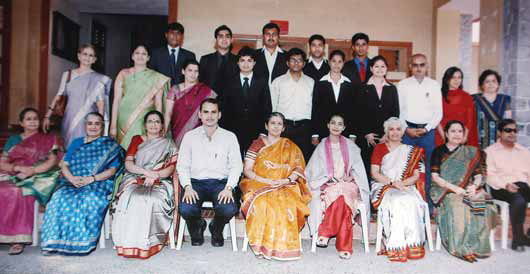
Presently we have the five-year Bachelor of Law (LLB) course after 12th, where we admit 240 students which goes the full five years. The second is the three-year course (LLB) after graduation. Then we have the two-year post-graduate Master of Law (LLM) course. These courses are all affiliated to the Savitribai Phule Pune University. In addition we have some diploma courses affiliated to the University - Labour Law and Labour Welfare and Taxation Law.
There are also other diploma courses prescribed by the Bar Council which the college runs, to supplement the curriculum. ILS has developed other diploma programmes, offered to our own students, in Corporate Law, Medical Jurisprudence and Forensic Science, Human Rights, Competition Law, Cyber Laws and Information Technology. These courses are not presently part of the LLB curriculum. Students opt for these programmes which are complementary to the regular LLB course.
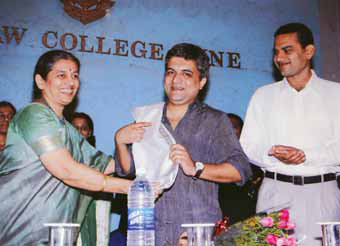
If you look at the list of the top ten law institutions in the country, only four-five institutions are constantly in the first-ten list, and the remaining four-five institutes keep on changing. Definitely there is competition. One must understand that legal education is in big demand, because it's not only for those who want to be lawyers in the conventional sense, wearing a black coat and appearing in the court. The lawyer has also become negotiator, advisor, and counsellor. As MNCs are coming to India and big law firms are setting up shop, these legal advisors are in huge demand because they advise international clients on mergers, acquisitions and so on. When you liberalise or regulate, you require to work in a legal framework at all points of time. So, as many good law schools can come up, they are welcome. I will never say let others be out of competition and we alone remain in existence. The opportunity is so huge that even if many more good law schools come up, we need them. What is important is that it should not be only a centre for profiteering.
Being an affiliated law college, we operate under many constraints. We are a law college affiliated to a university, under the grant-in-aid pattern of the state. So, the Bar Council of India is our master, the state of Maharashtra is our master, Savitribai Phule Pune University is our master, even the management is our master and so our college is answerable to so many authorities.
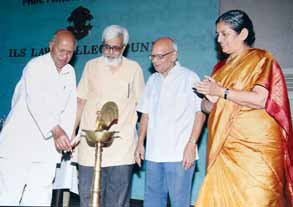
The Indian Law Society are our masters and I am not saying it in a bad sense, because they have always been very supportive. Without the support of ILS, the college would not have run for such a long time. The college came under grant-in-aid pattern only in 1995, till then we used to admit students and manage our finances. When the university started regulating the fees our hands were tied, as far as charging of fees was concerned. We were bound by university rules to pay this or that scale to the teachers, non-teaching staff, etc. And during all these difficult financial conditions, the Society always supported us, because the law college was the only unit of ILS for a very long time and therefore it always took effort to see that the college maintained its standard and imparted good quality legal education.
We can't change our curriculum unless the board of studies in the University decides to change it. So what we do is, we offer supplementary courses for those who are interested. That is how we keep on adding, else we would have been stuck with those seven-eight subjects. Maintaining quality is definitely a challenge we have to take into account, and offer what best we can provide. When SS Pune University announces its results, all the ten toppers are from the ILS Law College. It is an indicator of how we maintain quality. If you look at the activities we take up for students, it is of a very wide range. We have moot-court competitions, trial advocacy competitions, judgment writing competitions, writing alternate judgment competitions, Constitution Olympiads, parliamentary debates, legal-aid programmes, Women's Studies Centres, and many others.
We can't change our curriculum unless the board of studies in the University decides to change it. So we offer supplementary courses. That is how we keep on adding...
During vacations when students go to their natives places, they like to intern, for example, with the Law Commission of India or the Human Rights Commission, we recommend them for these internship programmes. They are also sent to private companies like Tata, Mahindra or other law firms, to work on various projects.
We have a placement cell, but my observation is that the best legal talent we have in the college prefers to go into independent practice in the courts of law. But there are also many good students who don't have the inclination for court practice and join law firms, multinational companies, banks or insurance companies. For placement at ILS Law College, students have to appear for an examination we conduct. Only those who pass in the examination and qualify are enrolled in the placement cell. Then we have programmes for skill training and domain knowledge revision. Then the placement in-charge and some volunteers prepare a brochure of all these students and send them to companies who come to us. Our placement activity is not limited to a single month, companies come to us throughout the year. Besides, private law firms, media and entertainment companies, NGOs also come to us to pick talent.
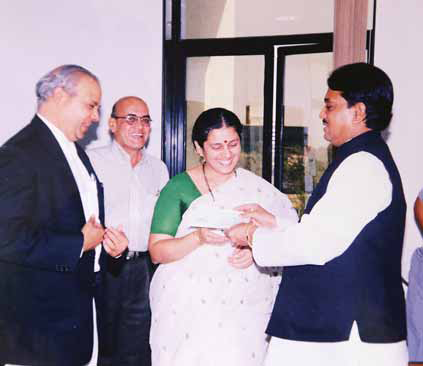
The strategy we use is 'Do our best in every activity of the college' and provide socially-relevant and professionally-desired legal education. This may be in classroom teaching, moot-courts, organising various competitions etc._we try to give the maximum to the students so that when they get out of this college, they can handle any situation, whether they are in litigation, in a law firm or in politics. Their mental frame should be such that how-so ever difficult the situation is, they should be able to handle it. To have that kind of approach among your students, there cannot be any compromise. You have to have good faculty, excellent library, a congenial atmosphere and a very disciplined atmosphere. You also have to see that the students interact with each other, because they come from across the country, from various strata of society. The more they mingle with each other, their give-and-take between them also improves. Working in a team, getting accommodated with other students, accommodating other people, all these attitudes are required to be developed. So we consciously design activities that encourage maximum interaction. You can't be the best only because of one factor. You have to be best on all counts.
We don't have a registered alumni association, as many colleges have. Their entire functional hierarchy is different and we don't have that kind of structure at all. What we do is that on the 25th of December every year, we send general invites to all alumni. Between 1951 to 1972, the college passed through a very bad phase, financially. At that point of time the college was required to stop many of these activities. And then the number of teachers at the college was also very small to manage such associations. However, very recently we have created a database of all our alumni and we propose to have a proper alumni association. There are very big names, as I have mentioned earlier, and they regularly participate in our activities and lend financial support.
Students today are very brilliant. The only thing I find is that the span of their interest has shrunk drastically. They have very short-lived interest in a subject, they expect results very fast, and don't have the patience to wait. Suppose I am a student and I participate in an activity and one single participation does not help me to excel immediately, I have to take effort again for the second time, third or may be fourth time, to be familiar with the subject. That requires patience and time, but they are not willing to give that. The trend is to take up a job through placement, but within one or two months, they feel that it is not their cup of tea. Then they get into law practice and there too they expect very fast results. Today they focus more on certain specialisations and don't want to be in general streams. In the past, the majority of students chose to be general practitioners and specialists were very few. Today, it is the reverse.
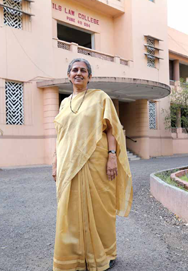
Today, the most popular area of specialisation is Corporate Law. Students look for jobs in multinational companies, where there is more opportunity and more pay. The majority of them are not at all interested in practicing at the district or mofussil courts at village or taluka levels. Of the entire litigation in India, only 5-10 percent cases go to the High Court or Supreme Court, whereas 90 percent of the people seek justice at the grass-roots level in the district courts. If good students are not willing to go to district courts, the cause of justice will suffer. The reason for this bias is that students feel practising at the lower judiciary level is not challenging or glamorous. Ultimately, you also have certain perceptions about the delivery of justice and the way the courtrooms are presented. So, the courtrooms in the High Court are bound to be more attractive than at the district and mofussil levels. There you are required to talk to the client one-to-one, go into the records of evidence, cross-examine, and that is a very challenging job, but somehow students have lost interest in that kind of practice. Probably the other reason is that it is not that paying. Thirdly, they are not interested in this elaborate procedural requirement of litigation. And fourthly, they feel that years together nothing happens in the lower courts. A case is filed and there after for six-seven years nothing happens. This is the delay due to which our legal system is suffering. Students don't like to go to the lower courts and that is a very dangerous trend.
We try to give the maximum to the students so that when they get out of this college, they can handle any situation, whether they are in litigation, in a law firm or in politics
Having a legal acumen is beneficial wherever you are. As a common man, if you know law, you get a different kind of insight to look into your problem. Our dealings with other people also get better. Whether it is the media or a multinational company, law regulates everywhere. When you have a legal background, you know your position in law. If at all you go to the court of law, you have some sense of what is going to happen. Your interaction with other people and the way to look at life are also better guided.
We wanted to change the perception of people at large and especially students, that Law was a part-time course and need not be taken seriously. The status of the legal profession and legal education was at stake and it was directly connected with serious classroom teaching and learning experience. So the presence of students in the classroom was absolutely necessary.
Students today are very brilliant. Only, the span of their interest has shrunk drastically. They have very short-lived interest in a subject, they expect results very fast, and don't have the patience to wait...
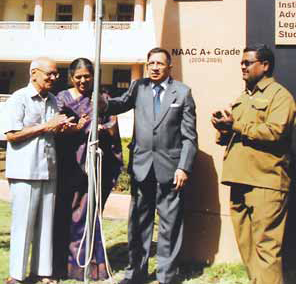
We devoted nearly 10 years to making class-room attendance compulsory for students. We observed that poor classroom attendance also demoralised teachers. We decided that we had to bring in seriousness among the students, to elevate the status of the course and the standard of ILS Law College. For nearly 80 years, class-room attendance was not compulsory. Students had got used to that kind of provision and bringing them into this discipline was a very big challenge. In the beginning we implemented a zero attendance policy, where students with no attendance were not allowed to appear at the examination. Then we implemented compulsory 20 percent attendance, then 25 percent, and gradually over a period of time, we succeeded in bringing it to 75 percent. It was a struggle, not easy. Students filed petitions in the Bombay High Court, challenging our attendance requirement. We faced political agitation, protests from student organisations.
Parents cursed us because we did not allow their wards to appear for the exams and they would lose an academic year. Pressure was high from all fronts. But we succeeded in bringing in that policy, and it has improved the participation of students in various college activities. Today we have 1,600 students, of whom nearly 1,000 participate in the moot-court activity, where earlier we used to have about 10 students attending. It has benefited the student, that was the purpose.
In 1995, we put up a proposal for funds to the Ford Foundation in Delhi, to enhance the quality of legal education. We wanted to bring in many academic changes within ILS. But because of our system constraints, we had been unable to do so. The Ford Foundation gave us a grant of 2,50,000 dollars (nearly RS.1 crore at that time) in 1996. We designed programmes to up lift the facilities at the college, improved the capabilities of teachers, improved our library collection, and designed a new curriculum. We started nearly 13 diploma courses in various areas of law which were not part of the curriculum. ILS gives the certificates and the college teachers upgrade the programme.
Only two weeks back we got permission from the Pune University to have a PhD centre at ILS Law College. So, today the college can offer undergraduate and postgraduate education, as well as PhD. So, if we want to convert ILS into a university, the set-up is now complete. The next step is to convert ILS Law College into ILS Law University.
BY RAJESH RAO